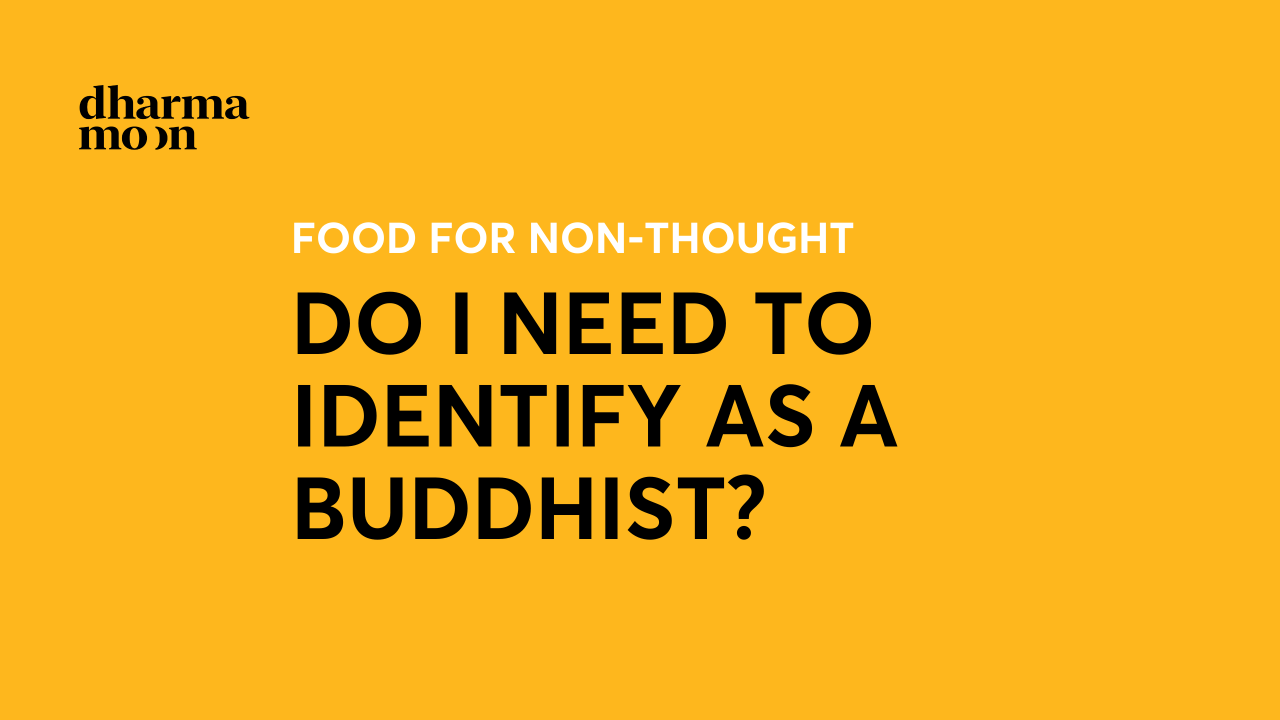Do I Need to Identify as a Buddhist?

Written by Noel Coakley
A very common question that arises when people come into contact with meditation practices is whether or not they need to identify as a Buddhist. The short answer is no.
According to the Dalai Lama, Buddhism is a philosophy, psychology, and science of the mind. With that said, it is certainly approached as a religion and spiritual practice and there are those that argue it could be approached in an entirely secular manner. At its heart, it addresses the human experience of suffering, freedom from that suffering, and becoming familiar with truth beyond that suffering, including natural capacities of wisdom and love.
Who does this belong to? Any particular spiritual tradition, religion, or culture? Buddhism is a particular tradition of speaking to these topics, yet they are certainly not uniquely Buddhist. Who does love belong to? Who does freedom from suffering belong to? Compassion? Wisdom?
It is entirely possible to apply many (maybe even most) of the practices from Buddhism to being a Christian, a Muslim, or an atheist. With a wide open view, you may find in your experience that there’s no contradiction.
One major departure from some of the other traditions is that Buddhism itself is non-theistic. It does not identify any sort of higher being in that sense that is overseeing the whole operation and, instead, emphasizes our personal experience and engagement. There isn't anything or anyone coming to save us in this perspective. For those that do not ascribe to religious views, the practices and philosophy of Buddhism follow a direct, experiential logic that could be approached in a very secular manner requiring zero blind faith.
With that said, one could possibly apply all of the philosophy and practice toward realization within a theistic framework. For instance, one could be supported in being more familiar with God by learning to stabilize their mind and recognize the qualities of God in their own hearts.
One could ultimately make the argument that it’s neither entirely secular nor entirely religious. It’s maybe a little bit of both. There is some middle overlap of philosophy, psychology, practical advice, and spirituality that all meet. Which way it leans really depends upon how it is approached and engaged with by the individual. Buddhism uniquely defies falling tightly into any of these particular categorizations. It is ultimately concerned with universally human experiences and, within it, can take any number of styles of approach.
The most helpful answer to the question is really another question: How would you like to approach it?
